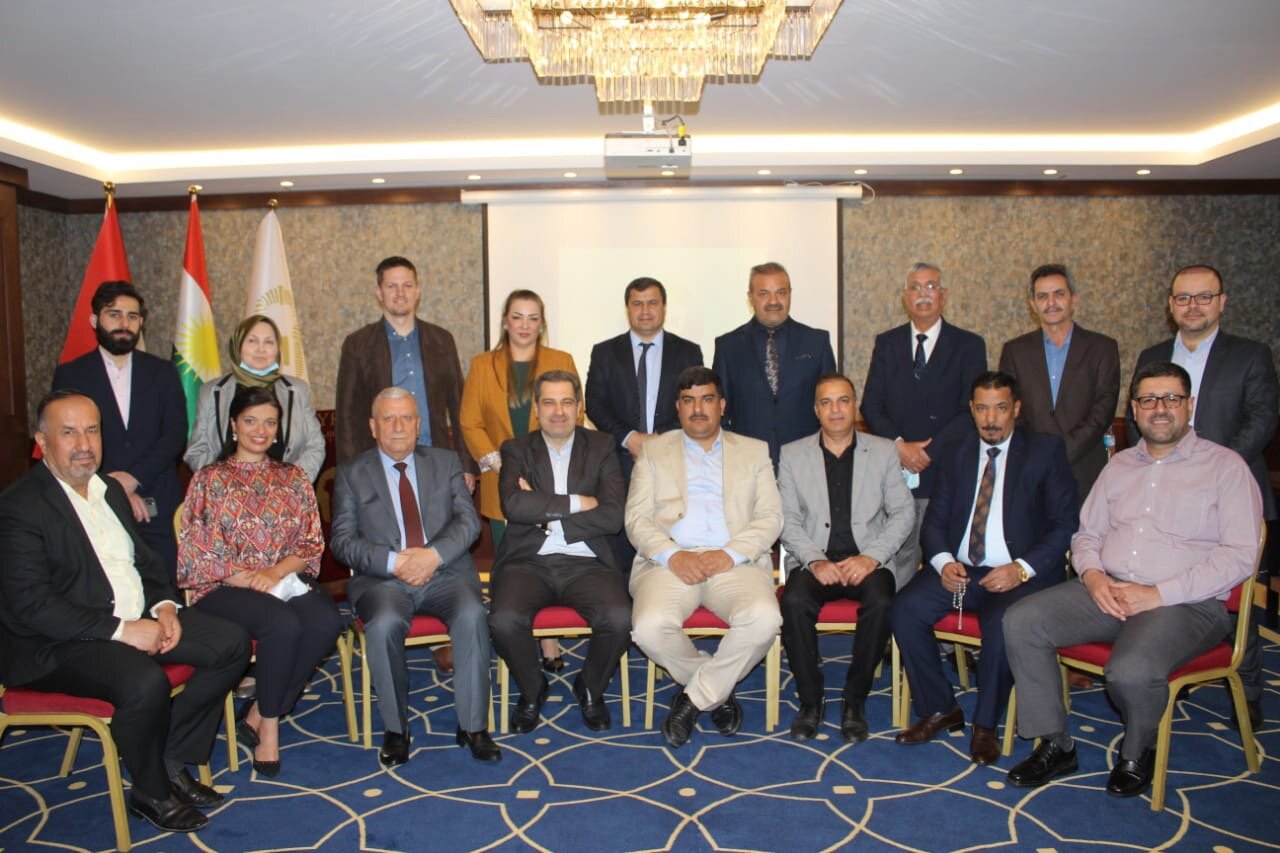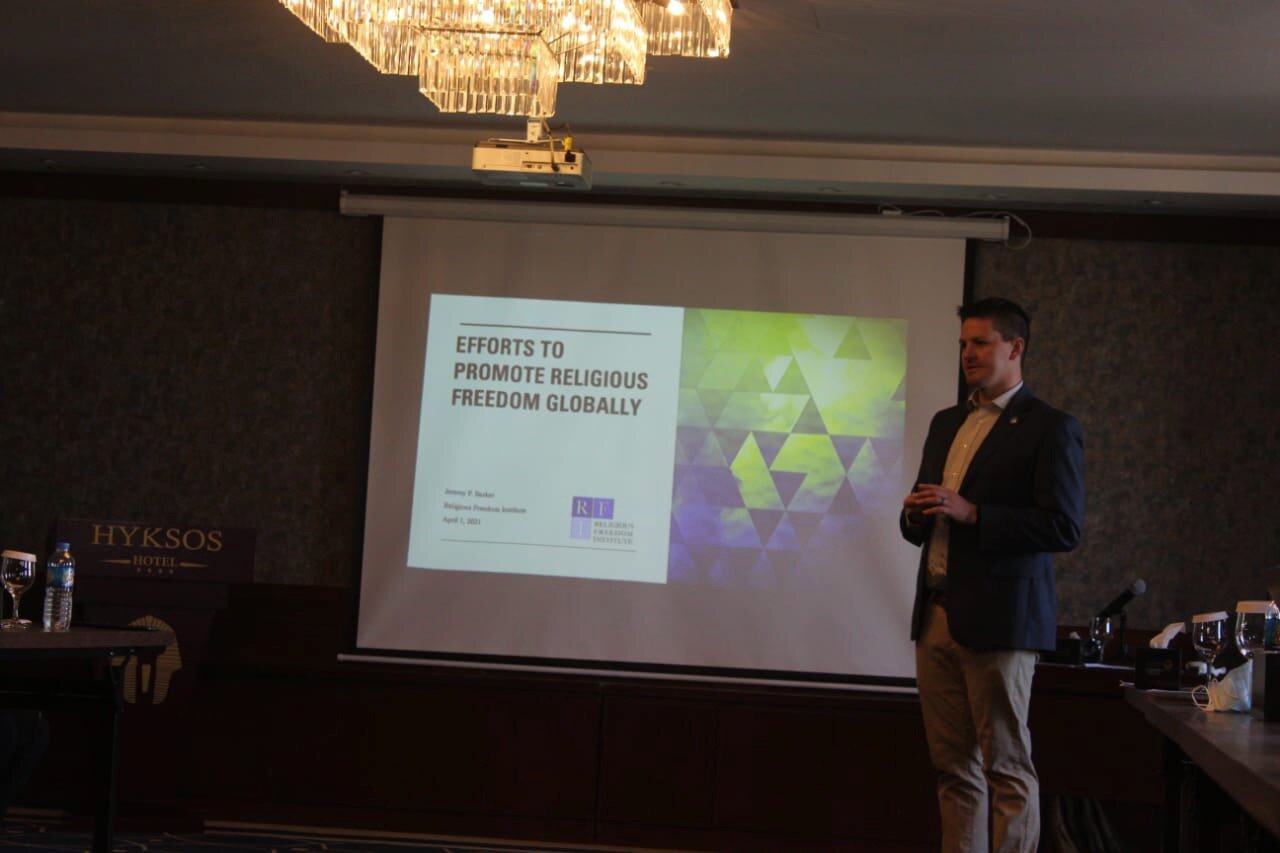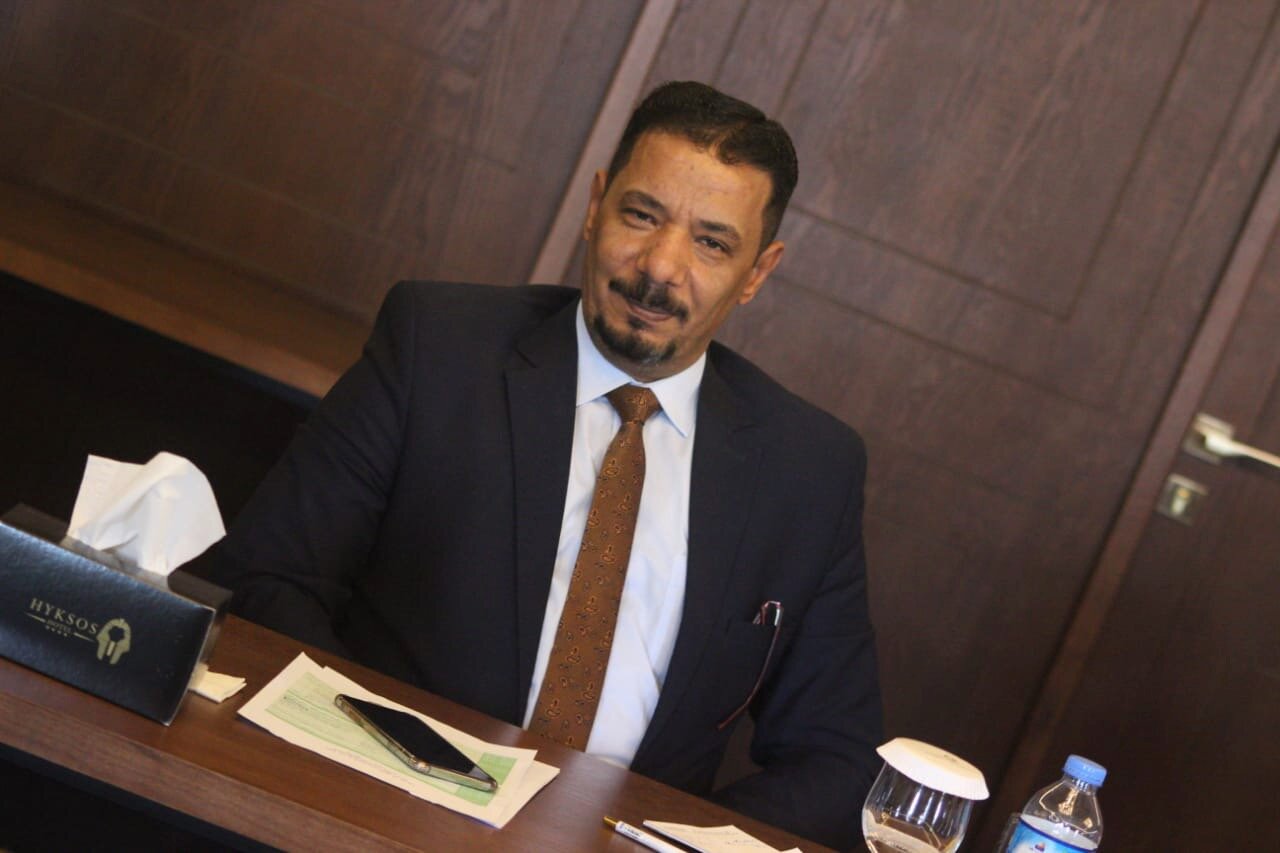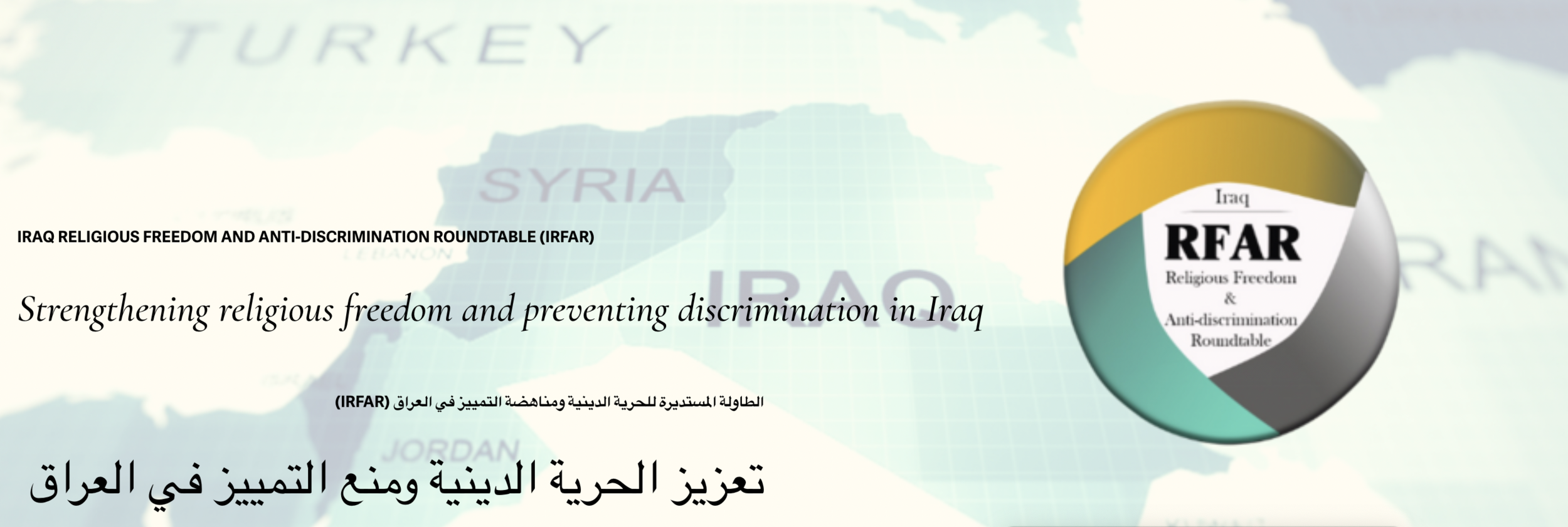On April 1-2, 2021, the Religious Freedom Institute co-sponsored a two-day working meeting of the Iraq Religious Freedom & Anti-discrimination Roundtable (IRFAR) in Erbil, Iraq. The purpose of this event was to gather roundtable members to discuss the current situation of religious freedom and discrimination in Iraq, and to identify practical and collaborative solutions for addressing these challenges.
Over the two days, more than 20 individuals representing large swaths of Iraq’s geographic and religious landscape and various sectors including universities, humanitarian and development NGOs, government officials, and religious and tribal leaders participated in the sessions.
The agenda covered key concepts related to religious freedom and discrimination. There was a frank discussion of the challenges various communities are facing and opportunities to make a positive impact. The deliberations from the roundtable will inform the production of a forthcoming RFI Iraq Religious Freedom Landscape Report and other activities.
During one session, Jeremy Barker, Director of RFI’s Middle East Action Team, presented on key elements of religious freedom and its connection with individual and social flourishing. As he highlighted, “religious freedom is a foundational right and closely bundled with other rights, and where religious freedom increases, other goods come along with it.”
Following the session, Ghanim Ilyas, Executive Manager, Ghasin Al-Zaiton Organization for Youth, reflected on the meaning and value of religious freedom noting, “Freedom of religion is an individual and collective freedom, and it enables individuals to manifest their religion or belief and to practice their religious rites openly without harassment from either the authorities or members of society.”
Professor Tayseer Abel from the College of Law at Basra University commented on the importance of religious freedom in Iraq saying, “society is not complete without religious, national, and ethnic pluralism, Iraq is a bouquet of flowers of different colors, and the image does not show its brilliance and beauty except with this multiplicity.”
Barker also presented an introduction to global efforts to promote religious freedom, drawing on Surveying the Landscape of International Religious Freedom Policy (Barker, Bennett, and Farr, 2019).
IRFAR discussed its own next steps and follow-up activities that member individuals and partner institutions can take to seize key opportunities to promote religious freedom in culture and policy across Iraq.
THE RFI BLOG

Does Southeast Asia Lead the World in Human Flourishing?

RFI Leads Training Session on Religious Freedom Law and Policy for U.S. Army War College

Oral Argument in Charter School Case Highlights Unconstitutional Motives Behind OK Attorney General’s Establishment Clause Claim

Largest Longitudinal Study of Human Flourishing Ever Shows Religion’s Importance

Keys To Human Flourishing: Faith And Relationships Outweigh Wealth
CORNERSTONE FORUM

Reaffirming Religious Freedom: Bridging U.S. Advocacy and Iraq’s Constitutional Framework

Political Polarization, Same-Sex Marriage and Religious Liberty

Bridging the Gap Between International Efforts and Local Realities: Advancing Religious Freedom in the MENA Region

Challenges to Religious Freedom in Iraq and the Critical Need for Action





